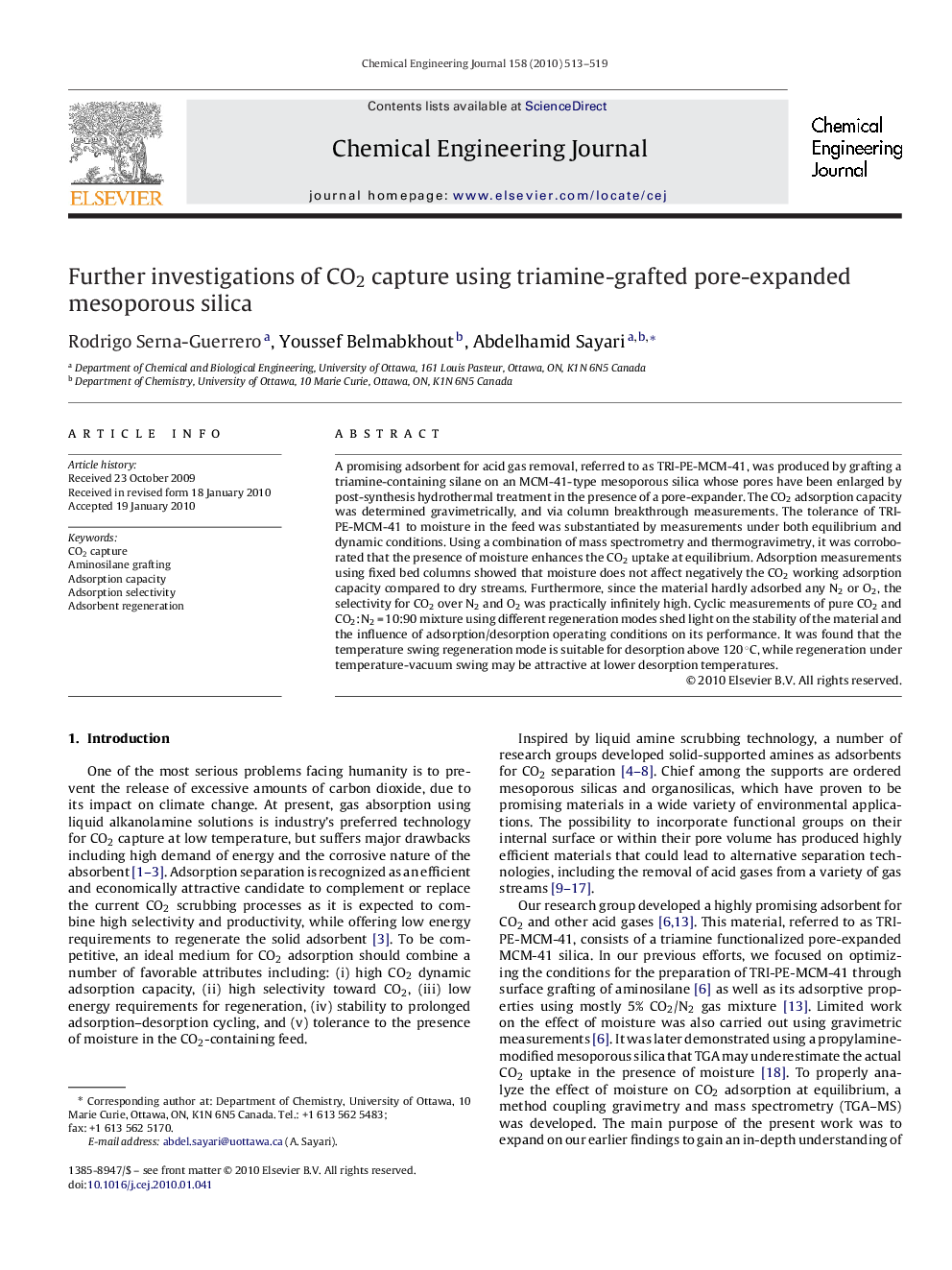| Article ID | Journal | Published Year | Pages | File Type |
|---|---|---|---|---|
| 151670 | Chemical Engineering Journal | 2010 | 7 Pages |
A promising adsorbent for acid gas removal, referred to as TRI-PE-MCM-41, was produced by grafting a triamine-containing silane on an MCM-41-type mesoporous silica whose pores have been enlarged by post-synthesis hydrothermal treatment in the presence of a pore-expander. The CO2 adsorption capacity was determined gravimetrically, and via column breakthrough measurements. The tolerance of TRI-PE-MCM-41 to moisture in the feed was substantiated by measurements under both equilibrium and dynamic conditions. Using a combination of mass spectrometry and thermogravimetry, it was corroborated that the presence of moisture enhances the CO2 uptake at equilibrium. Adsorption measurements using fixed bed columns showed that moisture does not affect negatively the CO2 working adsorption capacity compared to dry streams. Furthermore, since the material hardly adsorbed any N2 or O2, the selectivity for CO2 over N2 and O2 was practically infinitely high. Cyclic measurements of pure CO2 and CO2:N2 = 10:90 mixture using different regeneration modes shed light on the stability of the material and the influence of adsorption/desorption operating conditions on its performance. It was found that the temperature swing regeneration mode is suitable for desorption above 120 °C, while regeneration under temperature-vacuum swing may be attractive at lower desorption temperatures.
